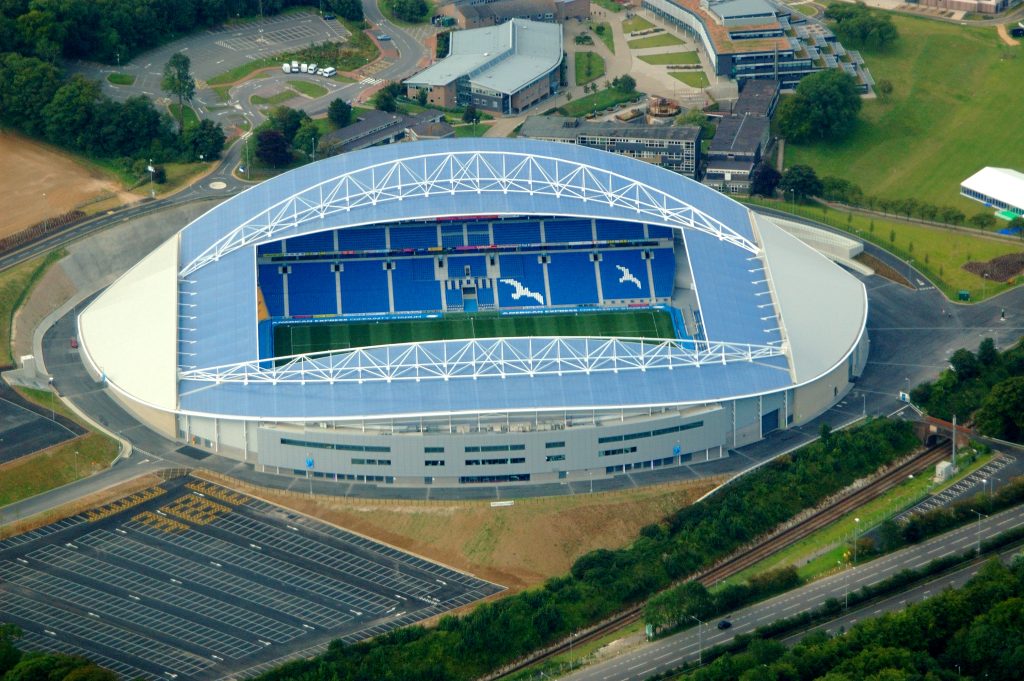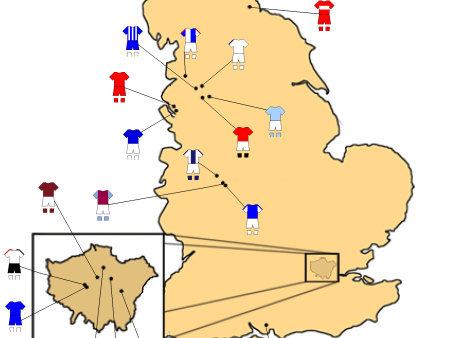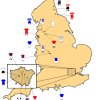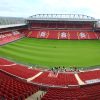
As a football fan, you understand the significance of a stadium to a team. It’s where dreams come true and heroes are born. The Amex Stadium is the place for Brighton & Hove Albion. The Amex has been BHA’s home since 2011, and it has become an iconic landmark for Brighton. It’s also been crucial to the club’s success, propelling the Seagulls from the depths of the footballing globe to the pinnacle of the Premier League. In this post, we’ll look towards Amex’s history, the BHA’s early years, the club’s ascent to prominence, the club’s part in its success, and what the future holds.
So, let’s find out how the Amex Stadium and Brighton & Hove Albion are connected.
History of the Stadium
Since 2011, Amex Stadium has served as the home of Brighton & Hove Albion, and it has witnessed some spectacular moments! The stadium was established in 1997 by Lewes District Council, a village development business, and was initially used for athletics. It was eventually purchased by American Express, thus the moniker Amex, and the stadium was entirely renovated in 2010. This involved the building of a new, cutting-edge pitch, new seating, and a completely reconstructed stand.
The stadium currently seats 30,750 people, making it the largest in the south of England. It is also the first stadium in the United Kingdom to be completely carbon-neutral. Brighton & Hove Albion’s association with the stadium began in 2011 when the team relocated and the Amex Stadium became their home ground. Since then, the stadium has witnessed some of the club’s most historic moments, including their promotion to the Premier League in 2017.
Brighton & Hove Albion’s Early Years

You might remember the early days of Brighton & Hove Albion when they were just starting out on their path to becoming a famous football club. The team was created in 1901 and began playing in the Southern League Division Two in the following year. They were promoted to Division One in 1906 and went on to reach the FA Cup semi-finals in 1908. They also received a new home ground, the Goldstone Ground, during their inaugural season in Division One.
This would be their home for the next 95 years, until they relocated to American Express Community Stadium in 2011. Despite a number of noteworthy victories, their time at the Goldstone Ground was mostly defined by financial difficulties and relegation. They were relegated from the Football League in 1997. However, the team’s fortunes altered when they relocated to Amex Stadium. The team’s resurgence began with the move to their new stadium, and they were promoted back to the Football League in 2011.
The Club’s Rise to Prominence
This would be their home for the next 95 years, until they relocated to American Express Community Stadium in 2011. Despite a number of noteworthy victories, their time at the Goldstone Ground was mostly defined by financial difficulties and relegation. They were relegated from the Football League in 1997. However, the team’s fortunes altered when they relocated to Amex Stadium. The team’s resurgence began with the move to their new stadium, and they were promoted back to the Football League in 2011.
The Amex Stadium has provided a platform for the club to achieve new heights in dramatic fashion. The club was promoted to the Premier League after winning the EFL Championship. The team has also signed a number of high-profile players, including Glenn Murray, Shane Duffy, and Mathew Ryan. This has enabled the club to compete at a higher level and earn global prominence. Brighton & Hove Albion have gained recognition and reached new heights of success thanks to the Amex Stadium. With the team now firmly established as a Premier League club, it appears poised to make its imprint on the global scene.
Amex Stadium’s Role
The Amex Stadium, with its modern facilities and big capacity, has been instrumental in propelling Brighton & Hove Albion to the next level. Since its inception in 2011, the stadium has played an important role in the club’s journey to prominence. It has enabled larger crowds to attend games, creating an environment that motivates the team and helps them win.
The stadium also provides a consistent source of revenue for the team through matchday tickets, merchandise, and catering. It has also given the team greater visibility and increased sponsorship opportunities. All of these factors have contributed to Brighton & Hove Albion’s rise to prominence and success in the Premier League. The Amex Stadium has played an important role in the club’s history and will continue to do so in the future.
The Future of Brighton & Hove Albion
Looking ahead, it’s obvious that Brighton & Hove Albion have a bright future ahead of them, given the team’s strong relationship with its magnificent home facility. With the team’s recent success, the Amex Stadium has become a focal point for the club’s ever-growing fans, and the stadium is routinely crowded with ardent supporters.
The club has made significant investments in the stadium, both in terms of infrastructure and commercial prospects. This has allowed the squad to push for larger and better success on the pitch while also generating more revenue. The club is currently well-positioned to go to the next stage of English football competition. Brighton & Hove Albion are set to write a new chapter in their history with their passionate fanbase, top-notch facilities, and a lineup of very skilled players.
Conclusion
You’ve seen how important the Amex Stadium has been to Brighton & Hove Albion’s success. The Amex has played an important role in the club’s development, from its humble beginnings to its current position in the Premier League. It’s no surprise that the Amex is one of the country’s most recognizable stadiums. With the club’s continuous success, the Amex Stadium will undoubtedly be an important part of Brighton & Hove Albion’s history for many years to come.







